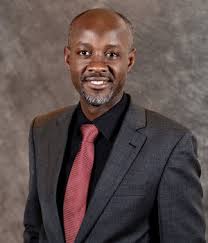
On June 12, 2025, Nigeria marked 26 years of uninterrupted civilian rule with the celebration of Democracy Day. A national holiday was observed, during which President Bola Ahmed Tinubu addressed a joint session of the National Assembly, where he expounded his administration’s achievements.
Democracy Day is more than a ceremonial milestone—it is a mirror through which we must recognise our several national achievements but confront the contradictions that define our Fourth Republic. At the heart of these contradictions lies a fundamental question: Can democracy survive when insecurity festers, institutions falter, and citizens lose faith?
The return to civilian rule in 1999 was won through courage, activism, and sacrifice. Yet, nearly three decades later, Nigeria’s democratic journey is undermined by persistent insecurity that not only endangers lives but threatens the very foundations of our republic.
From insurgency in the northeast to banditry in the northwest, separatist agitations in the southeast, and inter-communal violence in the Middle Belt, the map of Nigeria is pockmarked with zones of fragility.
What connects these crises is not just violence, but a governance challenge. Our security architecture remains stuck in a state-centric, militarised mindset, ill-equipped to respond to the complex, multidimensional threats facing the country today. Despite increased security and defence spending, new military commands, and the creation of additional security outfits, trust in the system remains low. Law enforcement is often reactive, and in some cases complicit in abuses that deepen alienation.
This is where Security Sector Governance (SSG) and Security Sector Reform (SSR) become critical to Nigeria’s democratic consolidation. SSG encompasses the structures, processes, values, and attitudes that shape decisions and their implementation within the security domain. Its core principles include democratic civilian control, adherence to the rule of law, robust accountability and oversight mechanisms, transparency, effectiveness, efficiency, and a profound respect for human rights and gender equality.
Our analysis of the 26 years of democratic security governance in the fourth republic shows the following trends that have served to prevent the attainment of Nigeria’s national security imperatives:
The synthesis of the above factors shows that more than ever before, Nigeria is in need of intentional implementation of a security sector reform as well as security sector governance as necessary prerequisites for preserving the imperatives of democratic aspirations.
In other words, securing the country is not just about deploying more boots on the ground. It is about ensuring that the institutions charged with protecting Nigerians do so within a framework that upholds the Constitution, respects fundamental freedoms, and earns public trust. Security Sector Reform must be holistic—addressing legal frameworks, institutional capacities, professional standards, community engagement, and oversight mechanisms.
The numbers speak for themselves. Thousands of Nigerians have been and are being killed or displaced, livelihoods have been destroyed, and vast territories have become ungoverned. The 2023 general elections—like many before them—were marked by voter suppression, violence, and impunity, particularly in insecure areas. In these places, democracy is not just weakened—it is practically absent.
Beyond poor security performance, the drivers of this crisis are rooted in deeper issues: a broken justice system, weak local governance, climate-related pressures on land and water, a youth bulge with limited economic prospects, and decades of institutional decay. What we are witnessing is not merely a security problem, but a legitimacy crisis.
Yet all hope is not lost.
Nigeria has the tools to reverse this decline—but only if leaders at all levels abandon short-termism and embrace structural reform. Achieving effective and efficient SSG and SSR must be intentional with the involvement of the executive, legislative and judicial arms of the government. A strategic plan for this is required. And this should be championed by President Bola Ahmed Tinubu.
We need a national security strategy anchored in human security, one that prioritises community resilience, access to justice, and citizen engagement. Security agencies must be reformed not only for efficiency, but also for accountability and public trust. Decentralised policing models, long resisted, must now be urgently explored in a manner that is rights-based and properly regulated.
Furthermore, the role of the judiciary cannot be overstated. A democracy without an impartial and effective legal system is a democracy in name only. Perpetrators of violence—whether state or non-state actors—must face justice. If the justice system is inaccessible or unreliable, insecurity will thrive.
As Nigeria approaches the halfway mark to its centenary in 2060, we must ask ourselves what kind of democracy we are building. A democracy that does not protect its people is no better than the authoritarian regimes it replaced. We owe it to the generations that fought for June 12, and to those who come after us, to do better.
Democracy Day should not only remind us of how far we’ve come, but how far we still have to go. The most enduring tribute we can pay to Nigeria’s democratic journey is not in speeches or parades, but in bold, urgent reforms that make democracy meaningful in the daily lives of ordinary citizens.
It is time to stop managing the symptoms and confront the root causes of Nigeria’s insecurity. Only then can we speak of a democracy worth celebrating.
Author:
Dr. Kabir Adamu
Managing Director Beacon Security and Intelligence Limited
